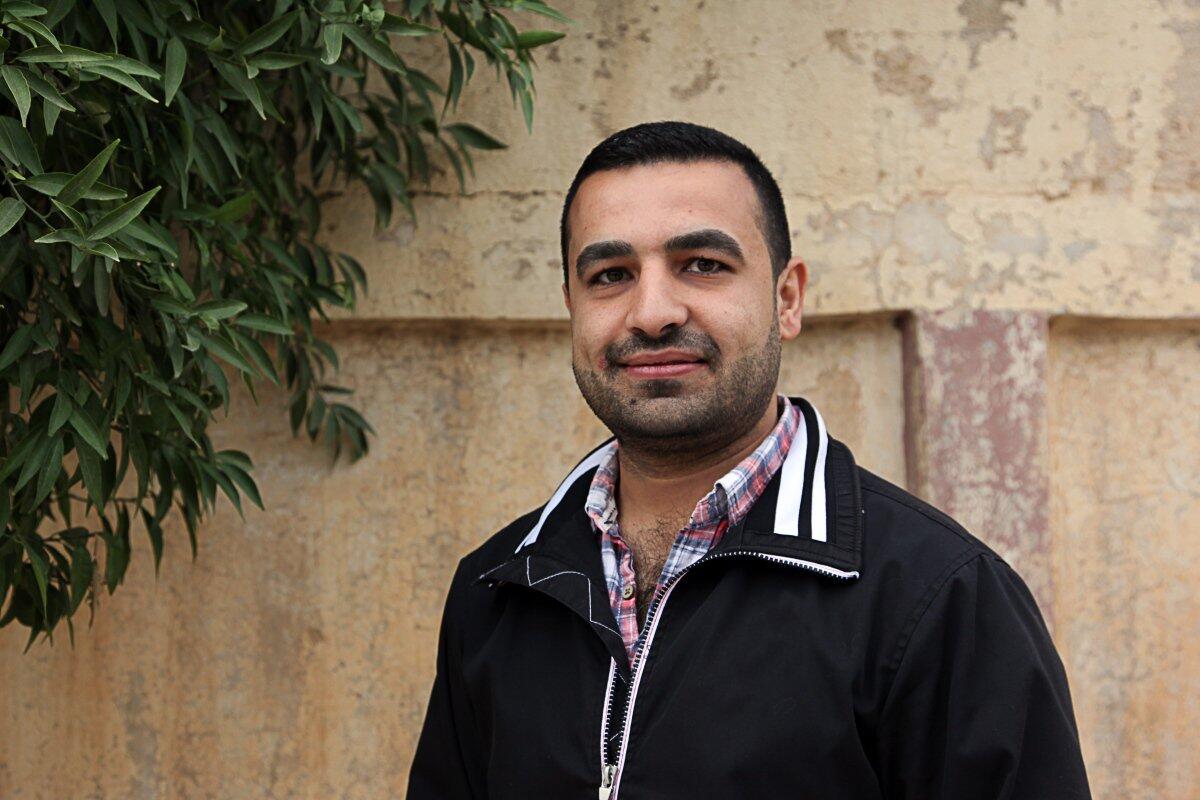
“Helping those displaced and seeking refuge is the main reason I do this work.”
As a Senior Officer for the International Rescue Committee (IRC) in northern Iraq, Muqatil regularly visits local communities to assess their needs and provide support. Many of the people he meets live in unfinished buildings and struggle to meet their basic needs. They are some of the most vulnerable families in Iraq’s ongoing conflict, which has forced over 3 million men, women, and children from their homes. Scores have fled north to the Kurdish Region of Iraq and cities like Duhok, where Muqatil works.
“Many families had to leave everything behind,” says Muqatil. “They had good paying jobs, nice houses, and cars. Now they are just trying to survive.” Muqatil feels close to these families. “I am originally from Mosul, which is not safe anymore because of the crisis,” he says. “I know what it is like to be away from your home. I chose to work for the IRC as I myself am displaced.”
Targeted cash assistance provided by the IRC allows displaced families to meet their needs in a flexible and dignified way. Muqatil explains why cash assistance is so effective, and how IRC’s programme works.
What is the main challenge facing displaced Iraqis in securing livelihood opportunities?
“Many displaced Iraqis living in the Kurdistan Region of Iraq only speak Arabic” explains Muqatil, which is an issue because the local population speak Kurdish. “This makes it very difficult for them to find employment as language is a huge barrier.” Complicating this challenge is the deteriorating economic situation and high competition for jobs. “Without a job, families are unable to support themselves. Expenses such as rent, food, and medical care become daily struggles” says Muqatil.
How does the IRC’s cash programming help?
“The IRC is one of the leaders in cash assistance in Iraq” Muqatil explains, “The staff are well trained and have been here since the onset of the crisis. The IRC takes time to understand the needs of the people.” The IRC has been one of the pioneers of cash assistance in Iraq, co-founding the Cash Consortium of Iraq and taking the lead on monitoring and evaluation for the group, and has been working with other agencies to create high quality programmes to reach the most vulnerable and conflict-affected populations. The IRC is providing cash to families in some of the harder to reach areas of Iraq; places where needs are high but fewer agencies are able to respond.
The IRC starts by giving a one- time cash payment to newly displaced families. The immediate cash helps those fleeing home to meet their basic needs. But some families need more help, such as households with high rates of dependency, households hosting people with disabilities, or those with one parent or caregiver or with many children. The IRC works with the local community to identify the most vulnerable families and helps them get back on their feet with 2 more months of cash assistance. IRC’s prolonged support puts some power and decision-making back in the hands of families who have lost so much. Cash restores a sense of dignity.
What are other benefits of cash assistance?
With over 3.2 million people displaced inside Iraq, the move towards cash programming is helping the IRC reach a large number of people effectively. In 2015 the IRC reached over 100,000 conflict-effected people in Iraq, and since May 2015 the IRC has distributed cash to over 1,000 people with support from ECHO. This is part of a strategy to meet basic needs better and put client preferences central to our response. After distributing the cash, we follow up with families to see how it helped them to meet their needs, and to learn how to deliver cash even more efficiently.
What is the impact of cash for displaced Iraqis?
The main impact of cash is at the individual and household level. One man who was badly injured while fleeing his town uses cash from the IRC for medical care, and to take care of his five daughters. Others use the cash to pay rent or buy food. Research by the IRC has shown that most people use cash for medical care, rent, food; vital, everyday necessities. Cash gives Iraqis the opportunity to make their own choices, and to determine what it is best for their family in that moment.
Conflict is ongoing in Iraq. What do displaced Iraqis need to maintain dignity and economic security?
We need to continue cash assistance that is flexible and expand to reach even more vulnerable families. In the long term, families need opportunities to generate their own income and get back on their feet in a new part of Iraq. The IRC is increasingly supporting displaced populations with cash and livelihood programming, such as business skill training and cash for work.
“It is very important that displaced Iraqis keep receiving economic services to recover and to develop,” says Muqatil. “Economic support from the IRC helps build strength and resilience. It provides opportunities for a better future.”
The International Rescue Committee works across Iraq providing, relief supplies, education support, protection services, and emergency financial assistance to the displaced as well as vulnerable locals. Supported by the European Commission's Humanitarian aid and Civil Protection department (ECHO), the IRC is working to help thousands of displaced Iraqi’s to prioritize and determine their basic needs through cash assistance.